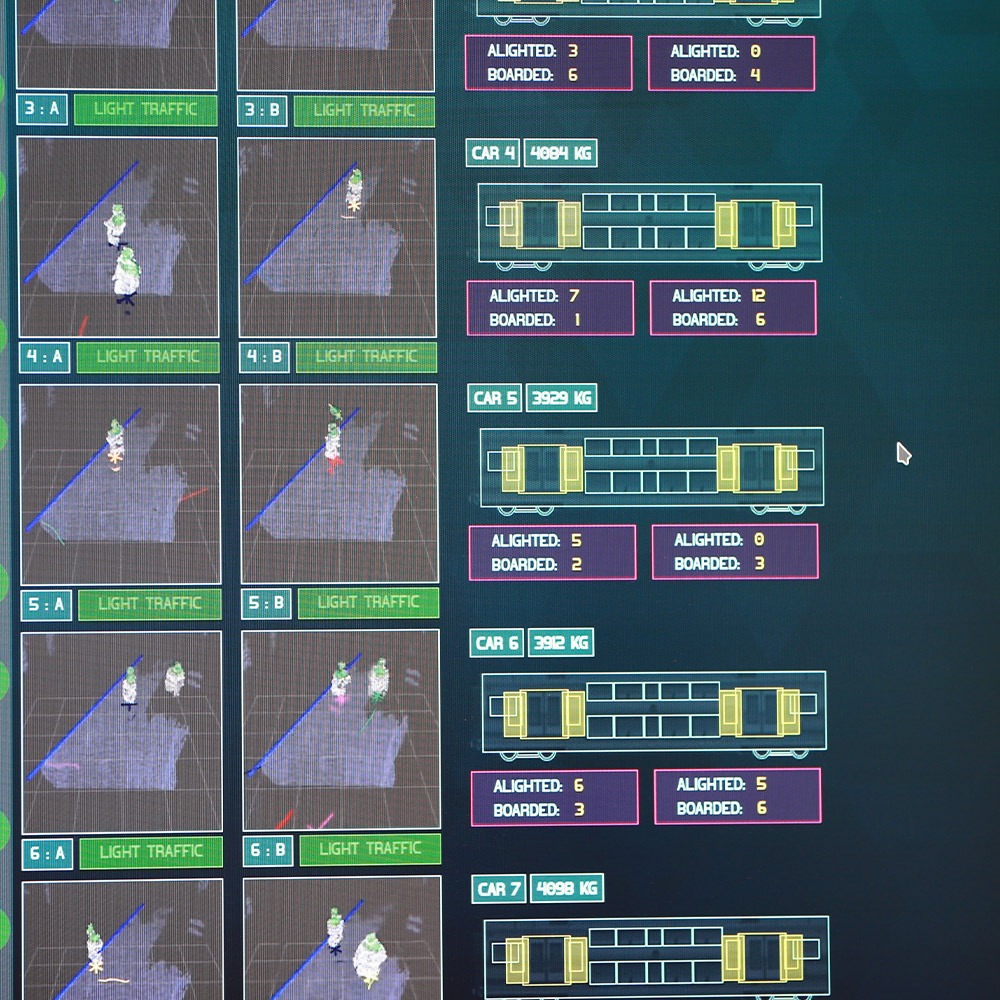11 Jun Design, Modelling and Simulation | Integrated passenger behaviour, train operations diagnostics and vehicle condition monitoring system
Design, Modelling and Simulation
Integrated passenger behaviour, train operations diagnostics and vehicle condition monitoring system
Downer (Saad Khan, Mike Ayling, Loic Ayoul) / University of Technology Sydney (Alen Alempijevic, Stuart Warren)

Research summary
Together with Downer, the University of Technology Sydney created Dwell Track – a complex dwell-time diagnostics tool that uses 3D Infrared cameras and algorithms to anonymously monitor passenger numbers and movement at train station platforms. The technology can quantify passenger congestion on platforms and near train doors that can lead to extended dwell times. Data from Dwell Track could enable train operators to improve platform management procedures and communications to passengers.
Start/end date
1 July 2014 to 30 November 2019
Total contracted budget (including in-kind)
$3,816,545
Key achievements
- The Dwell Track technology was able to automatically detect the platform edge, train door status and position/orientation of up to 50 passengers per camera on a railway platform.
- 16 Ethernet connected depth cameras were installed along the length of Wynyard’s platform three in the Sydney Trains network in late 2019, providing real-time data on mobile devices of platform staff via dashboards in a trial of the technology.
- DwellTrack was launched by Downer and UTS at the CeBIT technology exhibition in Sydney in 2018.


